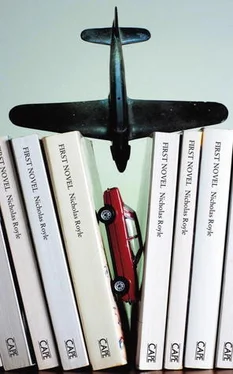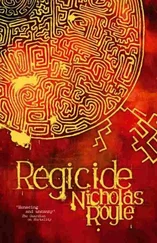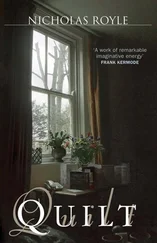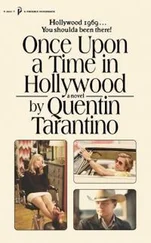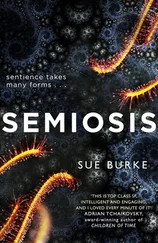Nicholas went back up to his room and stared at the sticklebacks and spider crabs swimming across the pages of his book. The drink didn’t help him make any more sense of Gothic script, but it made a nonsense of the looming deadline, which no longer seemed so important (or not until the following morning, at least).
Ray and Nicholas started to meet up more regularly, often on the South Bank or at the Tate or the National Gallery. Sometimes Nicholas invited Ray to come along to film screenings and afterwards they would get a coffee at Bar Italia and discuss the movie. They talked about Ray’s work, which Nicholas had started to read. Ray wanted to hear what his son thought of it. Indeed, when he was getting together material for a second collection, Ray asked Nicholas if he would mind reading the manuscript and giving him feedback. Were there some poems that shouldn’t make the cut? Was there too much of one type of subject and not enough of another? Nicholas said he was honoured to be asked, but that he felt inadequate to provide the kind of feedback he sensed was required.
‘Bollocks,’ said Ray.
Nicholas read the manuscript and he talked to Liz about it and then he read it a couple more times and arranged to meet up with Ray at Patisserie Valerie in Soho. Ray didn’t show. Nicholas waited half an hour then phoned Ray’s flat from a call box. There was no answer and his father appeared not to have an answer machine. He went back to Patisserie Valerie and waited a further half-hour. He called again later that day, but there was still no answer.
He kept trying.
Ray called the phone on Nicholas’ floor at Hughes Parry a few days later. He apologised. Something had come up, he said.
‘Don’t worry about it,’ Nicholas said, trying to keep the hurt out of his voice.
‘Look, Nicholas, I’m sorry,’ Ray said, sounding like he meant it. But still. ‘I lead something of an unpredictable life. Sometimes it’s hard to keep appointments.’
Nicholas wondered if that was what he was, an appointment. Like the dentist.
‘I’ve got to go, Dad,’ he lied. He had to get off the phone.
He went down to the bar, but it was shut, so he went to the pub on Marchmont Street opposite the Brunswick Centre and ordered a pint. He drank it swiftly, feeling nothing more than a slight unsteadiness, and so he switched to spirits. A vodka and grapefruit. A gin and lime. And another gin and lime, and another — asking the bartender to be generous with the lime. The bartender complied until he suggested Nicholas might have had enough.
All his life he had expected nothing of his father. He knew it was a mistake for that to change.
He went back to the hall and shut himself in his room and ignored people when they came knocking. He ignored Liz until she threatened to go and get the floor tutor to bring a master key.
‘What the fuck is this?’ she demanded. ‘How often does this happen?’
‘It doesn’t,’ he said. ‘It doesn’t happen. It happens very rarely. It happens very fucking rarely, OK? I’m very fucking surprisingly together, all things considered.’
He sat on the floor, pressed up against the wall, his hands clenched at either side of his head. He was trying to stop it from spinning.
The next message Nicholas got, to say that his father had called, he ignored. Liz managed to persuade him to call Ray a few days later, but there was no answer. He was aware that there would be some kind of deadline for getting his remarks about the manuscript back to his father. He wasn’t conceited enough to think that his input would have any great value, but Ray had asked him and so, for all Nicholas’ hurt pride, he was determined to finish the job. He didn’t have his father’s address in Camden Town, but the address of the publisher was easy to find. He parcelled up the manuscript with a handwritten note and dropped it off.
A few days later, Nicholas walked out of the hall. A familiar figure was leaning against the railings across the street.
‘I got your package,’ Ray said. ‘I wanted to thank you.’
‘No problem, but I’m late for college.’
‘I’ll walk with you — if that’s all right?’
‘Sure.’
Ray ended up taking the Tube with Nicholas over to the East End. He told him again that he was sorry he’d failed to turn up and he asked him to trust him — he said he knew there was no reason why he should — but he would have turned up if he’d been able to. From time to time, he said, there was a possibility he might fuck up with his timekeeping. It didn’t mean he didn’t want to see Nicholas, he said. It didn’t mean he didn’t—
At that moment the train hit a set of points and Nicholas didn’t hear what his father had said. It was a shame because he had a sense it had been something his father had been building up to, but, partly because of that, it didn’t seem appropriate to ask him to repeat it.
‘It meant a lot to me,’ Ray said, ‘not only that you read the manuscript and commented on it, but that you went to the trouble of delivering it. You had to go out of your way and you must have been pissed off at me for letting you down. So, thank you.’
Nicholas smiled and Ray put an arm around him and pulled him in for a hug, which Nicholas allowed him to do. It was the closest they’d been, physically, in years.
‘You know, if you’ve got problems,’ Nicholas said, looking at his shoes planted on the carriage floor, ‘you can talk to me about them. Whatever it is.’
‘Thanks, son. I will,’ Ray said.
During Nicholas’ second year, he continued to do well in French and badly at German. He worked hard on the college paper, attending press screenings — in the presence of broadsheet critics Derek Malcolm and Philip French and, on one memorable occasion, director Andrei Tarkovsky — when he should have been sitting in Professor Fowler’s lectures on Brentano, Goethe and Tieck. His relationship with Liz deepened and that with his father survived one or two more instances of apparent unreliability on Ray’s part. He waited on tables in the summer and got three weeks’ work experience at Time Out magazine, where he did a lot of filing and was asked to write a review that didn’t get used. But, more importantly, he got the bug and he knew what he wanted to do after graduating.
His third year was spent in Paris. Liz’s course wasn’t the kind you could dip in and out of, and Ray explained that certain circumstances prevented him from travelling, though he didn’t elaborate on what they were. As a result, Nicholas came back to London as frequently as funds allowed. He told Liz he was worried about his father, concerned that he might be on drugs. It would explain a lot of his behaviour — the unreliability, the restrictions on travel.
‘Maybe he’s on a methadone programme?’ Liz suggested.
‘For all I know,’ Nicholas said, ‘he could be supplying. I can’t see how else he makes a living, unless he has a private income. Which seems unlikely. There was an RAF pension, but I don’t know if he still gets that.’
Liz shrugged.
‘It could also explain the presence of that weird guy at the party,’ Nicholas said.
He’d timed one of his trips back to coincide with the launch party for Ray’s second collection, Flight Path , which was dedicated to the memory of Russell Flynn. At some point during the evening, Nicholas had seen a balding man in an unfashionable velvet jacket being firmly encouraged to leave by a couple of senior editors with a lot of literary lunches under their belts. He’d also spotted his father watching the ejection from a safe distance and visibly relaxing back into a conversation with a journalist and a publicist once the intruder had left the premises.
‘And why he’s so thin,’ Liz said.
Читать дальше
